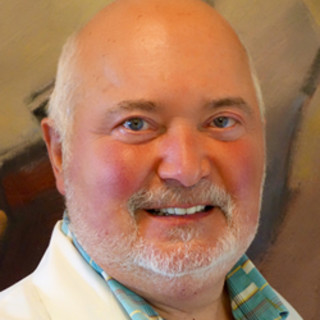
Over time, I've received a dozen requests from different forums as well as direct mail that concern the same question: Should I become a PA or NP?
My responses have varied depending on previous formal education. I feel that a good nurse who wants to be an advanced practice clinician should follow the NP role. A person without a nursing background on the other hand, but who possesses military combat experience, EMT experience, and knowledge of any and all specialties, should pursue a PA role. Both paths will eventually lead to graduation, a certificate, a national board, a license, and the opportunity to make a difference in U.S. health care. Both professions actually become the same type of provider about two years out, with those from a nursing background performing more documentation, particularly on the social status of a patient. This is an area that could be standardized, in my opinion, since it gives a better snapshot of the patient, their follow up, and ultimate discharge philosophy.
An Applicant’s Guide to Physician Assistant School and Practice is a textbook written from the perspective of a surgical physician assistant who was a former board member of the American Association of Surgical Physician Assistants. Writing a book or even a chapter is an arduous task and one that I enter into carefully and usually regrettably, as seeing my name in print is usually not worth the effort. But writing for your profession is a gift to those who are re-evaluating their career choices and can serve to be an extreme source of guidance. For this particular textbook, the author, Erin L. Sherer, MPAS, PA-C, RD, has done her best to cover all of the aspects of the PA profession and supplies tremendous amounts of information on schools, programs, and other addendums that are well worth the price of the book. She has clinical experience and works as an educator, and has joined the national association. She has asked countless questions of many respected PAs to discover answerers to questions—and to discover questions themselves.
Sherer paints a picture of the characteristic roles of being a PA. The book rediscovers our roots along the lines of what I always say: We were born on a field of blood. If you look at the heroines of nursing such as Florence Nightingale and Clara Barton, they too may make similar claims. The book clearly demonstrates the scope of practice from state to state. It highlights many of the available opportunities, the moonlighting, and other ways to pay off your PA school by making hard earned cash.
As the book evolves, it causes the reader to reflect on the most important factor: Why do I want to be a PA? As I have mentioned in the past, I have seen medical school graduates ask the same question and then move into totally different fields. For those that think PA school is a walk in the park, they are confronted with the reality of its course content. The discussion leads to financial costs and whether getting a similar job for a year or two will give you insight.
This program, not unlike many others, requires commitment which equals sacrifice. I once read the quote "you pay a price to gain a prize," and the price is very little time for social engagements, spouses, and children. There is almost no opportunity to get a part-time job because the academic role is so demanding and the clinical years are focused on the needs of the mentors and preceptors and needs of the medical centers. The discussion rightfully includes choice. Should I be someone's assistant, as in a PA context, or do I want to be the physician. Not everyone has the ability to spend a career as a passenger or sitting in the right hand seat of the cockpit. This small fact can be a huge difference. NPs have independent practice in 16 states and are constantly on an aggressive agenda to expand that number. In 7-10 years, you will basically have the same knowledge of your physician if you are a diligent reader and study new materials so there needs to be a reflection concerning your adaptation to that fact.
Sherer's book also includes "the prep work," or looking at your competition, their grades and demographics, clinical and shadowing experience and the decision as to what school you should apply to. These are all important questions and anyone contemplating becoming a PA needs to read them. There are chapters dedicated on "how to apply for PA school and what you will need as far as background, reference letters, personal statements, and current grades. Part IV of this book entails Surviving PA School. It almost sounds like the military SERE course or phases 1,2, and 3 of the Special Forces training program as there are demands beyond your expectations until you read the book. This is more than a "Q" Course in that you have the ability to use your budgeting skills, understand scholarships, and learn how to attain them. The Veterans Caucus of the AAPA offers many scholarships to bright, energetic PAs as you represent our future,
The book offers advice on how to plan a career, choose your specialty, pick your CME, and select your work setting and residencies. There is advice on how to prepare for the dreaded PANCE of the NCCPA. Most pass this test, but it is considered the gold ring on the merry-go-round. Instructions are given on how to interview and what jobs you should seek out based on your preferences. There are many other highlights to the book, but to write any more would make me the author. I believe that this is a book written by many authors, but compiled and structured by the one who signed the book. It takes time, courage, commitment and hard work to write a book such as this and I consider it the best on the market.
Robert M. Blumm, MA, PA, PA-C is an author, national conference speaker, and suture workshop director. He is the former liaison for the American Association of Physician Assistants and the American College of Surgeons, as well as the past president for the Association of Plastic Surgery Physician Assistants. He is on the editorial board at Clinician1 and Advance for NPs and PAs.







